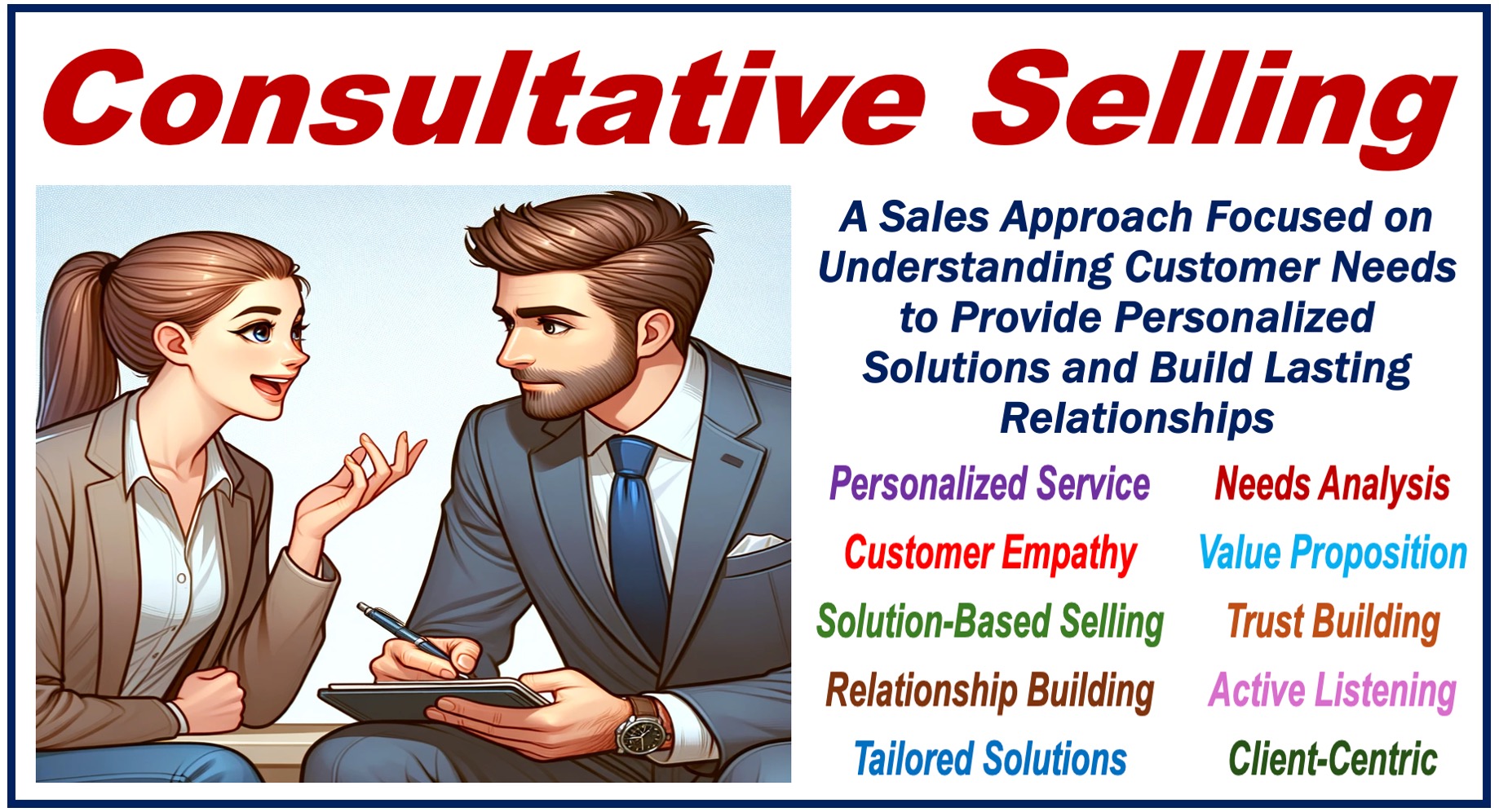If you work in sales and focus on building relationships with potential clients, understanding their needs, and offering solutions, you use a Consultative Selling approach. This is great!
In today’s fiercely competitive marketplace, successful sales is no longer about pushing products onto customers and prospects. Selling has become a much more sophisticated affair.
Those who are able to find out what their prospects want, which problems they need to solve, and what their goals and objectives are, tend to achieve the most sales. In this context, a “prospect” is somebody who you believe could turn into a paying customer.
Top salespeople today act as trusted advisors, helping their customers realize the best solution for their problems – even if it is not immediately obvious.
You are much more likely to turn a prospect into a loyal customer if you can help them sort out their challenges and pain points (specific problems or frustrations they experience).
Salesforce Inc. has the following definition of the term:
“Consultative selling is a sales approach that focuses on understanding your customer’s challenges and recommending products or services to resolve them.”
“Your role as a consultative sales professional is to empathize, advise, and advocate, not push a product. Customers should feel like you’re genuinely in their corner, treating their problems like your own.”
Why is consultative selling so effective?
Here are some reasons why this type of selling approach is gaining popularity and showing success across various industries:
-
Builds trust
Customers and prospects are more likely to buy from you if they trust you. By understanding their needs, problems, and goals, consultative sellers create a bond.

-
Offering solutions, not just products
Customers care about results. If you adopt a consultative selling approach, you will show them how your product or service directly solves their specific problems.
-
Longer-term relationships
This approach, like all customer-centric sales techniques, is not about a quick sale. It is about nurturing a connection that lasts, leading to repeat business and referrals.
-
Adapts to Customer Evolution
With this approach, you stay current with market trends, ensuring solutions remain relevant to evolving customer needs.
-
Enhances Value Perception
It allows you to frame the value proposition to match the client’s unique situation, strengthening the perceived worth of the offering.
How to use consultative selling
-
Listen actively
Many people think that good salespeople are great talkers. Being a great listener is a much more useful skill if you want to optimize your sales.
Pay close attention to the customer’s concerns and express genuine interest in their needs.
-
Ask open-ended questions
Ask questions that encourage the customer or prospect to explain their concerns, challenges, and goals in detail. Open-ended questions prompt discussion, while close-ended questions elicit ‘yes’ or ‘no’ answers.
An example of an open-ended question is, “Describe where you would like your company to be in 5 years’ time.” An example of a close-ended question is, “Do you want your company to grow?”
The answer to the second question is very short, just the word “Yes.” The answer to the first question is much longer.
-
Explain benefits, not just features
Don’t just list product features. Explain how those features provide specific, valuable benefits and address the customer’s pain points. In other words, carefully explain the benefits of your product.
-
Build Tailored Solutions
Rather than offering generic solutions, use the insights gained from active listening and open-ended questions to tailor your solutions to the customer’s specific situation.
-
Handle objections gracefully
Objections are a chance for you to further understand their concerns. Address them with empathy and clarify how your solution can help. Responding to objections defensively can jeopardize your sale.
Example of consultative selling
If you are selling a high-end software suite, you might ask the following questions:
- “What are your biggest workflow bottlenecks?”
- “How do you currently track customer interactions?”
- “What kind of reporting do you need for better decision-making?”
With the information you gain from your prospect’s response, you can tailor recommendations. Before getting into the thrust of presenting your product, make sure you have gathered as much information as possible.
Final thoughts
Consultative selling is not just about closing deals, but also about building partnerships with your customers.
By emphasizing relationship building, customer understanding, and tailored solutions, you have a powerful approach for long-term sales success.
